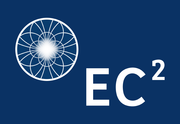The Einstein Center of Catalysis: catalyzer in natural and life sciences
22 September 2015

The Einstein Foundation Berlin will in future fund the Einstein Center of Catalysis proposed by the Cluster of Excellence UniCat.
The Einstein Center of Catalysis (EC²) is built upon the interdisciplinary and interinstitutional research of the Cluster of Excellence Unifying Concepts of Catalysis (UniCat). Prof. Matthias Driess of the Institute of Chemistry at TU Berlin will chair the new Center as well as UniCat. “The grant for the new Center is a major success and serves as a basis for future cooperation in catalysis research in the Berlin area, even beyond UniCat”, he emphasizes.
The Einstein Center of Catalysis (EC²) will serve to further develop new developments and advancements of those methods that will facilitate a breakthrough in understanding the dynamics of chemical and biological catalysts. The basic research at the Einstein Center of Catalysis (EC²) is directed towards the activation of important small molecules as raw materials that are essential for the energy turnaround, the raw material change and in the value chain. The exploration of the dynamic of necessary chemical and biological catalysts allows for more efficient and new ways for raw materials and medical products. Furthermore, scientific methodical potential is to serve itself as catalyst for new molecular research activities between the areas of Chemistry, Biology, Physics and Medicine in Berlin.
Central partners of the Center are the Fritz-Haber-Institute of the Max-Planck-Society (FHI), the Leibniz-Institut für Molekulare Pharmakologie (FMP), the Leibniz-Institut für Analytische Wissenschaften (isas), the Helmholtz-Zentrum Berlin (HZB) as well as UniCat-BASF Joint Lab.
For further information please contact:
Dr. Martin Penno, UniCat Cluster of Excellence, Public Relations, Tel.: +49 30 314-28 592, E-Mail: martin.penno(at)tu-berlin.de
